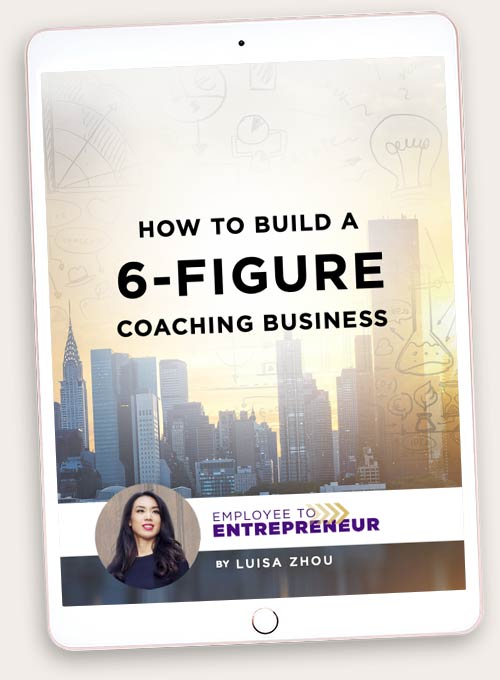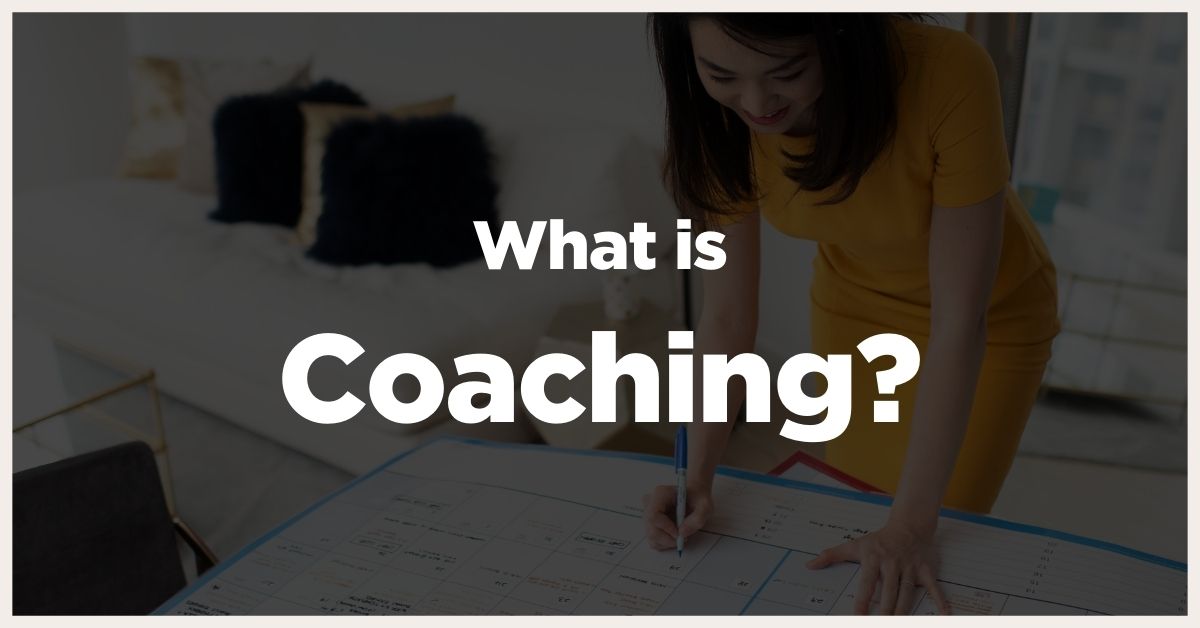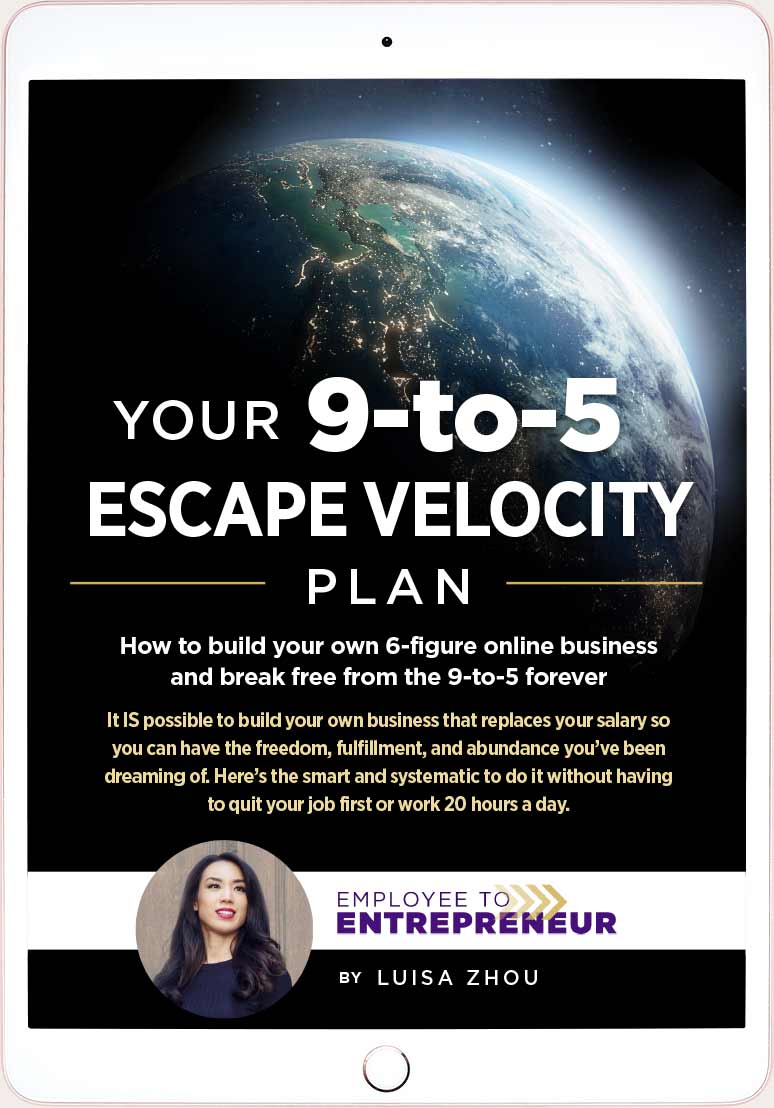What is coaching?
That’s the big question you’ll learn in this guide.
By the end of it, you’ll know what coaching is AND what’s needed from you to become the best coach you can be.
Ready to dive right in? Let’s go.
What is coaching?
What is the main purpose of coaching?
At its core, coaching helps people grow and achieve their goals.
If that sounds a little vague, it’s because coaching can be useful in many different ways.
So, what is coaching in one sentence?
The International Coaching Federation (ICF) describes it as “partnering with clients in a thought-provoking and creative process that inspires them to maximize their personal and professional potential.”
Here’s why coaching is more than just talk:
- 68% of people who work with a coach see a return on their investment. On average, people earn back over 3 times what they spend! (2009 ICF Global Coaching Study)
- One study shows that coaching has a 221% ROI. That’s more than double the investment. (International Society for Performance Improvement)
- 51% of businesses with a solid coaching foundation report bigger revenue than their industry peers. (Human Capital Institute)
This shows that coaching isn’t just hype; it’s transformative.
How can coaching help?
When done right, coaching can help with the following things:
Get the Ultimate Guide
for building a
6-Figure Coaching Business so you can achieve more freedom!
- Goal setting: Defining clear and achievable objectives
- Overcoming obstacles: Tackling challenges
- Skill development: Improving personal and professional skills
- Accountability: Staying on track with commitments
- Perspective: Offering new viewpoints
- Performance boost: Becoming more efficient
- Self-awareness: Understanding oneself better
- Resilience building: Bouncing back from setbacks faster
Depending on your coaching approach and the client’s needs, some aspects will be more important than others.
What is the difference between coaching, mentoring, and counseling?
What is coaching vs. mentoring? Or coaching vs. counseling? Or even consulting?
Let’s take a closer look.
- Coaching: Coaching is goal-oriented and aims to unlock a client’s potential and achieve specific outcomes.
- Mentoring: Long-term in nature, mentoring offers guidance from someone experienced in a field.
- Counseling: Counseling is a supportive process that addresses current challenges to improve general well-being; the therapist is always someone with a licensed therapist.
- Consulting: Consultants provide expert advice to overcome particular challenges.
Here’s an overview:
| Term | Time | Emphasis | Style | Purpose |
| Coaching | Longer term | Empowerment and goal achievement | Guiding | Unlocking future potential |
| Mentoring | Long term | Personal and professional growth | Advisory | Long-term development and support |
| Counseling | Longer term | Emotional and mental well-being | Therapeutic | Resolving current issues |
| Consulting | Short term | Problem-solving | Directive | Offering specialized advice and solutions |
Teaching vs. training
Now, how do teaching and training fit into all this?
Teaching gives knowledge, while training focuses on skills.
In that sense, coaching and mentoring lean towards teaching as they offer guidance and wisdom. On the other hand, consulting is a little more like training, giving hands-on tips.
However, there can be quite some overlap.
Coach-sulting
The traditional form of coaching is when a coach guides a student to learn on their own. It’s a very Socratic form of teaching where the coach asks probing questions, like “How do you feel about that?”
The idea is simple:
That coachees will find their own answers, without the coach pointing them in any direction. It’s not focused on the results a coachee gets — but the act of coaching.
I define coaching a bit differently.
And what I’ve seen over the past 7 years is that the definition of coaching has evolved in this direction as the industry has grown.
Coaching today is much more about a combination of coaching and consulting — or “coach-sulting,” as I call it.
What do I mean by that?
You as the coach guide someone to get the result they want.
Instead of having your clients find all the answers themselves, you give them some of the answers so that they can get faster results. (And, of course, you also coach them to keep on achieving those results once they’ve stopped working with you.)
When appropriate, you can share your own experience to illustrate how and what types of results your client can get.
For example, a weight coach might say: “I’ve been through this myself. If you want to lose weight at this point, this is what I recommend that you do…”.
While the “old way” of coaching has its merits, coach-sulting is all about helping your clients get results much faster. And that’s why people ultimately want to work with you — to help them get to where they want to be.
Here, I dive a bit deeper into what coaching is:
What are the different types of coaching?
Here’s a quick glimpse into the different coaching niches:
- Coaching in the workplace:
- Executive coaching
- Leadership coaching
- Business coaching
- Team coaching
- Sales coaching
- Diversity coaching
- Coaching for personal growth:
- Nutrition coaching
- Mental fitness coaching
- Relationship coaching
- Holistic wellness coaching
- Financial coaching
Whichever niche you pick, you need to be able to offer your clients a real transformation. I’ll explain exactly how to make that happen in a bit.
Benefits of coaching: Why do people hire coaches?
Who is coaching for? And why do people turn to coaching? Let’s see some numbers.
Here’s what people gain:
- Management skills: 61% feel they improved their business management skills thanks to coaching. (2009 ICF Global Coaching Study)
- Self-confidence: 80% feel more sure of themselves with coaching. (2009 ICF Global Coaching Study)
- Business success: One in three founders who are mentored by successful entrepreneurs become top performers. (Endeavor/TechCrunch)
- Better relationships and interpersonal skills: Most clients report that coaching improved their relationships (73%) and interpersonal skills (71%). (2009 ICF Global Coaching Study)
- More sales: Sales coaching leads to about 28% more deals. (CSO Insights)
- Career growth: 62% see more job chances with coaching. (2009 ICF Global Coaching Study)
- Health benefits: 3x more people lose weight with a coach than with other methods. (Obesity (Silver Spring))
Ultimately, people hire coaches to help them with all kinds of problems. For example, to:
- Help them improve their health
- Boost their career
- Grow their business
- Improve their mindset
- Reduce their stress
- Find a relationship
- Make better financial decisions
- …And so much more
As you can see, the benefits of coaching can be found in many different areas.
To help your clients achieve these transformational results, you need to know the five principles of coaching.
We’ll cover these next.
Principles of coaching
Great results mean glowing feedback, and that brings in more clients — a positive cycle.
But how do you make this happen?
Get the Ultimate Guide
for building a
6-Figure Coaching Business so you can achieve more freedom!
To excel as a coach you have to master a few key coaching principles. These are valid for ANY coaching niche.
Let’s look at them up close.
1. Establish clear goals and give actionable advice
To really help your clients, you need to know three important things:
- Where they’re at right now
- Where they want to be
- What’s been holding them back
Once this is clear, you draft a roadmap.
You set up a timeline to reach their goals. And you also lay out clear, doable steps to achieve them.
Where will your client be in one, three, or six months from now?
And what must they do to get there?
Essentially, you create a monthly plan to map out the A-to-Z journey. Let’s say you’re a health coach. Here’s what your monthly plan might look like:
Month 1 – Help clients focus on eating habits.
Month 2 – Maintain those habits.
Month 3 – Add an extra strategy that helps clients get even better results.
This plan is especially helpful for new coaches who are developing their coaching skills and who haven’t helped hundreds of students just yet.
2. Learn to see the bigger picture
Here’s a secret: the BEST coaches have been there, done that.
They’ve walked the path, learned from their mistakes, and came out on top.
This lets them see the bigger picture of how everything fits together.
What do they do with this insight? They guide their clients, helping them connect the dots and see beyond the here and now.
3. Make clients believe in themselves
If you think about something you wanted to achieve in your life, you know it’s a lot more helpful to have someone in your corner who has achieved the same.
As a coach, that’s your job — to help your clients believe that what they want to achieve is possible (even if you can’t guarantee them results).
Back when I started my first online business as a career coach, I didn’t strongly believe that it was really possible to build a business online. I looked at successful people in the field and figured they had something I didn’t have, so I ended up hiring my first business coach.
That’s the reason your clients hire you — you’re someone with experience who can help them build confidence in their own abilities.
4. Improve self-awareness and resilience
A big part of coaching is giving feedback.
Continuous feedback fosters self-awareness.
It helps clients recognize their strong points and areas of growth.
Plus, understanding themselves better also builds resilience.
While you’ll want to give a lot of positive feedback, constructive feedback is just as important. That’s number five on this list.
5. Get better results
Results — at the end of the day, they’re what defines a good coach.
Finally, as a coach, you offer candor. You have tough conversations and you’re upfront about what clients need to move forward.
You essentially help your clients uncover what’s going on in their minds so that they can reframe and get results.
For example, a relationship coach whose client isn’t seeing the results might say, “You came to me to find the love of your life. We mapped out the steps, the first step is to work on your own self-love. Right now, you’re choosing not to feel like you are worthy of love or find someone who respects and loves you.”
(This is just an example and works in any industry.)
Is it something most people want to hear? No, of course not. But your job as a coach is to tell them things even if they don’t love it if it’s what they need.
That’s how I’m able to help my clients get results like these with my programs:

Next up, let’s take a look at the best coaching questions.
Examples of good coaching questions
Asking the right questions makes a BIG difference.
They let your clients understand themselves better and figure out what they want.
I’ve been coaching for many years, and I’ve found some powerful questions that really help my clients get results.
Here’s my top ten:
- “Where can I give you some extra support?”
- “When we started working together, you mentioned you had fears around (insert fears). How are you feeling about this right now?”
- “What did you do this week?”
- “What went well this week?”
- “What do you want to focus on during this call?”
- “What questions are coming up for you?”
- “What else can I support you with?”
- “How do you feel about that?”
- “What’s coming up for you?”
- “What’s your biggest takeaway from today’s call?”
Next steps
There you have it!
Get the Ultimate Guide
for building a
6-Figure Coaching Business so you can achieve more freedom!
You now know the answer to the question: What is coaching?
As a coach, you’ll also establish your own methodology to help your clients get the best results.
Ultimately, building a coaching business can offer you freedom and flexibility – and help you do truly impactful work.
Want to learn how to build one?
If you’re (almost) ready to leave your 9-to-5, then check out my free blueprint to set up your online coaching business the right way.

Want to Build a 6-Figure Coaching Business So You Can Achieve More Freedom?
Get Instant Access To My FREE Ultimate Guide Below!
When you sign up, you’ll also receive regular updates on building a successful online business.
Read more
How to Develop Your Coaching Philosophy
Coaching Templates: The Definitive List
Everything You Need to Know about One-on-One Coaching








